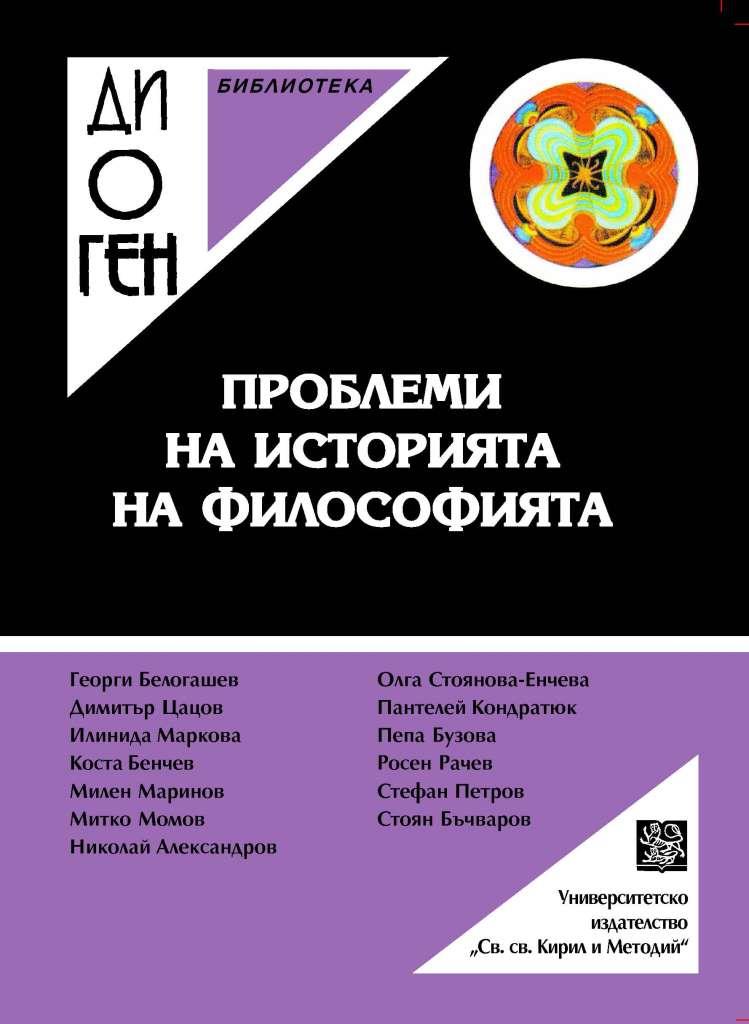
Философията Изток – Запад
This article deals with the stages in the attitude of Western scholars to Eastern philosophy
More...We kindly inform you that, as long as the subject affiliation of our 300.000+ articles is in progress, you might get unsufficient or no results on your third level or second level search. In this case, please broaden your search criteria.

This article deals with the stages in the attitude of Western scholars to Eastern philosophy
More...
This article discusses the problem of education according to E. Fink and E. Levinas. In Fink’s opinion, education should acquaint young people with basic phenomena of human being, and introduce them to the problems of the being as a whole, immortality, culture and history. The basic method that should be used in education is the game method. According to Levinas, education should acquaint young people with The Other, with its uniqueness and originality. Respect and preservation of otherness is the basic principle in his philosophy. Moral education can only be realized as religious education, and communication with The Other can be achieved though prayer. Religious education is what can introduce a person to the history and culture of the world.
More...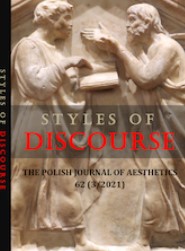
This paper studies the question of plurality of mathematical styles, i.e., whether a fundamental mathematical work is characterised by a single style or by a multitude of styles; and, whether the unity of a subject in mathematics in its development is the outcome of a single style or several styles. The question is studied (a) within a single mathematical work and (b) through the study of the same problem over time and illustrated on Menelaus’s Sphaerica and the isoperimetric problem.
More...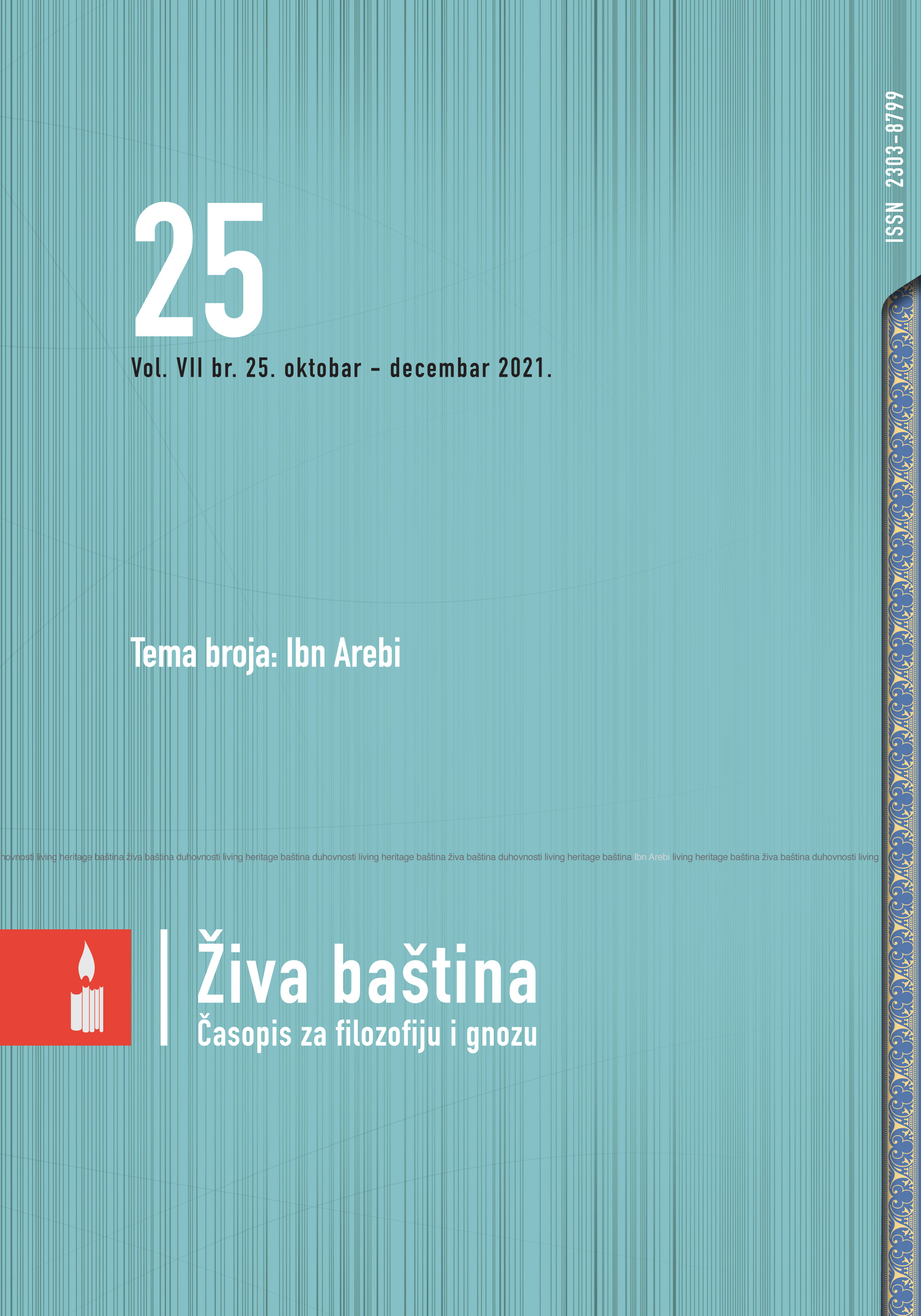
Woman occupies a significant place in Ibn ‘Arabi’s Sufi discourse. She has a polyvalent function in his spiritual anthropology, but equally so in his metaphysics and in traditional cosmological considerations. Ibn ‘Arabi did not show his special respect for women only by receiving special spiritual inspirations from her in his own spiritual quest (sayr al-sulūk) and knowledge of special spiritual states (ahwāl) and stations (maqāmāt) through which the friends of God pass on the spiritual path of Sufism, but he also showed such respect for her in the way he performed spiritual ordination over her, he wrapped her in Hidr’s robe of Sufism and initiated her into the mysteries of the spiritual doctrine of Sufism. As much as a woman on the spiritual path of Sufism could be a spiritual teacher to a man who is just entering the spiritual path, she could also, in her spiritual states and stations, be able to lead over many men and progress faster than them, about which the history of Sufi literature offers abundant plausible testimonies.
More...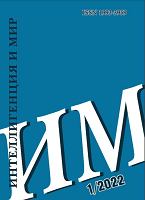
This article is the first attempt to examine the work of the pagan historian Ammianus Marcellinus IV century through the prism of Platonic philosophy. Neither foreign nor domestic historiography, for all its vastness, has analyzed in any detail the questions of the influence on the historian of Platonic and Neoplatonic philosophy, which was extremely popular in the era of the late Roman Empire. The main task of our research is to trace the influence of Plato’s philosophical heritage in the historical work of Ammianus Marcellinus “Res Gestae”, especially since he is practically the only one of all the pagan historians of the fourth century who describes his philosophical views in detail. It should be noted that Ammianus Marcellinus is the historian who attracts Plato’s philosophy not for a kind of “decoration” of his text, but who is undoubtedly well versed in it, knows its main provisions and concepts, and with their help, thereby “strengthens” his reflections and numerous digressions. Ammianus undoubtedly knows the central concept of all Platonic philosophy — the doctrine of ideas. On the basis of this, in the “Res Gestae” there is a rather detailed concept, based on the works of Plato and Plotinus, about the cycle, the rebirth of the human soul according to the law of Adrasteia. Ammianus correctly understands that the stars are the place where the soul dwells before its incarnation in the material, sensual world. And, finally, the historian quite accurately sets out the ideas about the individual spirits-the protectors of man, the daemons, given to him from birth. Of particular note is the image of the Emperor Julian, one of the central characters of the entire work. The main provisions of the philosophy of Plato and Plotinus are found precisely in those parts of the text “Res Gestae” where we are talking about the characteristics of this ruler, thereby revealing the already convincing image of the emperor as an adherent and zealot of exclusively pagan views. Therefore, all of the above facts, undoubtedly, give out in Ammianus Marcellinus an author who quotes and mentions Platonic philosophers not chaotically and pointlessly, but with a deep understanding of the meaning of this citation.
More...
In this article the questions under discussion are the properties of Descartes’s application of the first rule of his method, which requires not to agree with anything that could give rise to doubt. It is well known that Descartes came to the conclusion that only the truth “I think, therefore I am” is undoubted.The article examines the logical status of this truth and reveals that it is an entimeme where the major premise is unstated. An analysis of Descartes’s works shows that the premise that he does not explicitly express is the proposition “If I think, therefore I exist, and if I do not think, then I do not exist. ”It follows that Descartes’ complete syllogism would be like this: “I exist if and only if I think; I think; therefore, I exist.” In this paper, the discussion focuses on the proof of the certainty of the position “I exist,” proposed by St Augustin in his treatise The City of God. St Augustin proves the proposition “I am deceived that I exist” to be false in every possible interpretation. Hence the position “I exist” is true in every possible interpretation. According to Descartes, the only undoubted statements are those that are kept within the limits of “I think,” or within the limits of inner experience, while the data of external experience are always dubious. Thus, the statement “I walk” is not obvious, since it can only seem to me that I am walking. At the same time, the judgment “It seems to me that I walk” is undoubtedly. Ancient sceptics also believed that the data of internal experience are doubtless, and the data of external experience are not due to the fact that all objects of the external world are in fact not what they seem to be. However, there is a significant difference between the ancient sceptical approach and that of Descartes. I put forward the view that the ancient sceptics, although they are convinced that the things of the external world are not what they seem, still surely believe that each item in that world exists. But Descartes surpassed both ancient sceptics and academics in their scepticism, since he doubted the very existence of the external world. He was able to imagine that he exists exclusively as a thinking entity with no body, no world around him, and no space to store that world. It is by the fact that Descartes doubts the existence of the external world that he has cleared the way for transcendental philosophy and phenomenology.
More...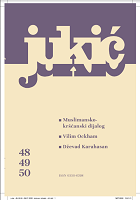
U prethodnom trobroju Jukića (45–47) objavo sam tekst o Vilimu Ockhamu pod naslovom “Začetnik moderne metafizike”. Krajem 2019. Jürgen Habermas objavio je svoju povijest filozofije u dva sveska, u kojoj veoma argumentirano pokazuje značaj Vilima Ockhama za filozofsko mišljenje. U ovom tekstu pod naslovom “Vilim Ockham: začetnik moderne političke paradigme” ukratko izlažem novosti koje Habermas primjećuje u Ockhamovu filozofskom mišljenju, zatim prikazujem studiju Marine Miladinov, koja je s latinskoga na hrvatski izvrsno prevela Ockhamova Opera politica i protumačila Ockhamovu političku filozofiju. Nakon toga pokazat ću da nas Vilim Ockham uvodi u modernu političku paradigmu, koja je par excellence humanistička zato što se oslanja na utemeljitelja pokreta i Reda Franje Asiškoga, koji je želio živjeti po Isusovu Evanđelju, a to znači služiti svima i ne vladati ni nad kime, biti stalno minor (ʻmanjiʼ), a ne maior (ʻvećiʼ), u čemu se sastoji ljubav kao poniznost odnosno samoponiznost.
More...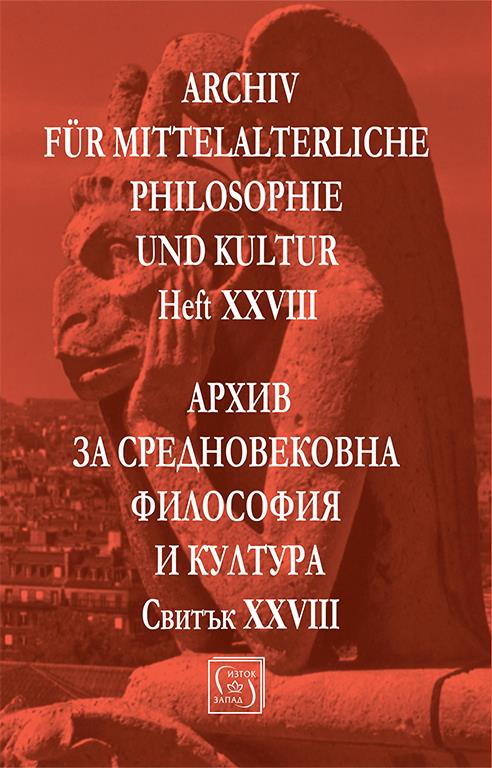
The goal of this article is to present and analyze the laws related to the engagement, the marriage, and the divorce according to the Byzantine law code “Ecloga”, published in the second quarter of the 8th century. A comparison will be made with other law codes, especially the Code of Justinian, the “Basilika”, and the “Hexabiblos” of Constantine Armenopoulos. These provisions shed light on the economic and social relations of the Byzantine culture during the iconoclast crisis when the very existence of the Empire was threatened by the Umayyads and the early Abbasids.
More...
Temporal logic is one of the most fascinating fields in logic and philosophy nowadays. There are different types of temporal logic that depend on what the understanding of time is– if is it linear or circle, branching or not, with or without beginning and ending, and so on. One type of temporal logic is Ockhamist branching-time temporal logic which was originally formulated by Arthur Prior based on Ockham’s analysis of temporal proposition. The main problem in Ockham’s analysis is how God knows who will be saved and nevertheless no one is predestinated or how God knows future contingent proposition. Prior again has a problem with determinism and with the Diodorus Cronus’ Master Argument to which Ockhamist branching-time temporal logic is one of the solutions suggested by Prior. Prior formulated another type of branching time temporal logic which was based on Peirce’s philosophy which Prior prefers over Ockhamist one. However, the development of temporal logic shows that Ockhamist branching-time temporal logic has had a greater influence on scientific research in this field.
More...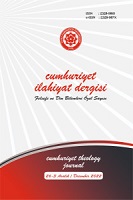
One of the most controversial issues in the history of philosophy is the theory of ideas. Mulla Sadrā states that he is the person who truly understands the ideas in the process from Plato to himself, and even, that he is alone in this regard. Sadrā says that he achieved this success thanks to his discovery and inspiration, as well as his being-centered philosophical system. He attributes the difficulty in knowing the ideas to the inability of the mind to comprehend pure and luminous beings. Just as strong lights dazzle the human eye or distant objects do not appear clearly, the human mind perceives ideas as vague and universal concepts. Ideas are universal, but not in the logical sense. For ideas are abstract luminous beings, not things that come out of a mental abstraction and generalization process. For this reason, divine help and intuition are needed in order to understand them. Based on the principle that the like can be known through the like, people who have melted their entire existence in the pure mind and perceive the ideas as the talisman of every species, the strong sustainer and ruler of the species. Although the ideas are not universals that are the product of the mind, they give power and light to the mind in creating logical universals. In that case, it is obvious that in the absence of ideas, it is not possible to talk about real knowledge. In other words, knowing something mentally means that it is at the ideal level of being. Otherwise, neither the fixed existence nor the knowledge of the thing can be mentioned. According to him, the issue of existence must be resolved in order to understand the ideas. It does not seem possible to grasp the solution of the problem of ideas without understanding the unity, organization and nobility of existence. Accordingly, while the idea of unity of existence solves the problem of getting a share, the idea of tashkīk makes it possible to distinguish between ideas and their individuals. The nobility of existence allows the multi-structure of the ideal realm to be performed in unity. Sadrā finds Avicenna's attitude on the subject of ideas strange because he did not take into account Esûlûjyā and the proofs developed accordingly. Also, he does not have the knowledge of the discovery of ideas. Sadrā sees Suhrawardī as the philosopher who comes closest to the truth on the subject. While proving the ideas, Sadrā does not hesitate to use the proofs developed by the defenders of the idea like Suhrawardī, but he states that only he has reached the truth of them. According to Sadrā, it is certain that the natural world is a product of the mind, so the existing ones must have prototypes in the abstract world. This situation is based on the ontological principle of priority and posteriority. That is, what is simple and abstract must come first. For the composite and material is the thing that comes into existence later. This is another expression of the rule of imkān al-ashraf. When the mind examines something existing in the realm of possibility, it judges that its higher possibilities must have existed before. Another proof is the principle of “The Supreme does not exist for the lower one.” In that case, Ideas do not exist for the corporeal species and their individuals below them. For this situation requires that the things that are taken as ideas and models to be more honorable and superior than the ideas. On the contrary, the forms of corporeal species are the mold and shadow of these intellectual and luminous forms. When the ideas are identified with both the knowledge of God and the divine names, they do not have their own existence, or any aspect that can cause multiplicity. In the creation of the universe, while the ideas correspond to the minds and are passive towards God, they are active compared to the beings below them. At this point, it should be said that ideas are often confused with qualities obtained by mental abstraction. In Sadrā's philosophy, quiddities are nothing but forms of existence. It can be said that within the framework of Sadrā's understanding of emanation, existence is divided into two as common/exclusive and ideas, and these two combine to create beings. In this respect, it is seen that Sadrā places the ideas in the position of form and the common being in the position of matter.
More...
Muslims have, from their very first days as geographers, historians, and theologians established correspondence with scholars of other religious backgrounds, thus making themselves familiar with various other and very interesting philosophical ideas, political systems, and finally with different theological perspectives. This will become particularly notable in the classical period of the development of the Islamic civilization. In this article, we shall establish and affirm, with the help of distinctive conceptual instruments, what we designate here as a theology of religion, with a particular accent upon the Muslim theology of religion. In fact, we intend to deal with one of the most challenging disciplines of theology which assumes to determine the self in relation to the other and different in terms of theological and philosophical ideas and doctrines. Theology of religion with Muslims is a distinctive phenomenon in the history of religion in general in regards to the extent of its academic usage and its terminological precision. As this article will present, theology of religion in the most general sense of the term is a fruitful contribution of the Muslim contemplative intellect which in a distinctive manner encountered other differing religious and cultural traditions and entered into specific and particularly objective dialogue with them. Objective, scientifically based studies of significance that deal with the phenomenon of the other and the different in the period between 8th and the 13th centuries are the fruits of the efforts of Muslims of the classical period. Such remarkable works, theological disputes, and studies of apologetic nature represent Avant- grade for all that is written and elaborated in this field later in the East and likewise in the West. Certainly, we do not hold that Muslims were the first, in the historical sense, to show interest in the other and the different, however, they were surely pioneers in systematic, scientific methodology, which is not argued even by contemporary western authors, who interacted, or better say entered an intertextual dialogue with others thus presenting an utterly new approach and an innovative paradigm for the interaction with the other and the different which will later be recognized in the West as theology of religion. And finally, this article is a kind of introduction to Muslim theology of religion in the classical period, which we here, for the first time in our region, aim to present and scientifically evaluate in a contextual and paradigmatic sense.
More...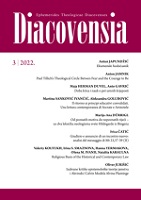
The American analytic philosopher of religion Alvin Plantinga developed the epistemological warrant theory and the Aquinas/Calvin epistemological model. Here we want to present his theory, model, and selected critical reviews.
More...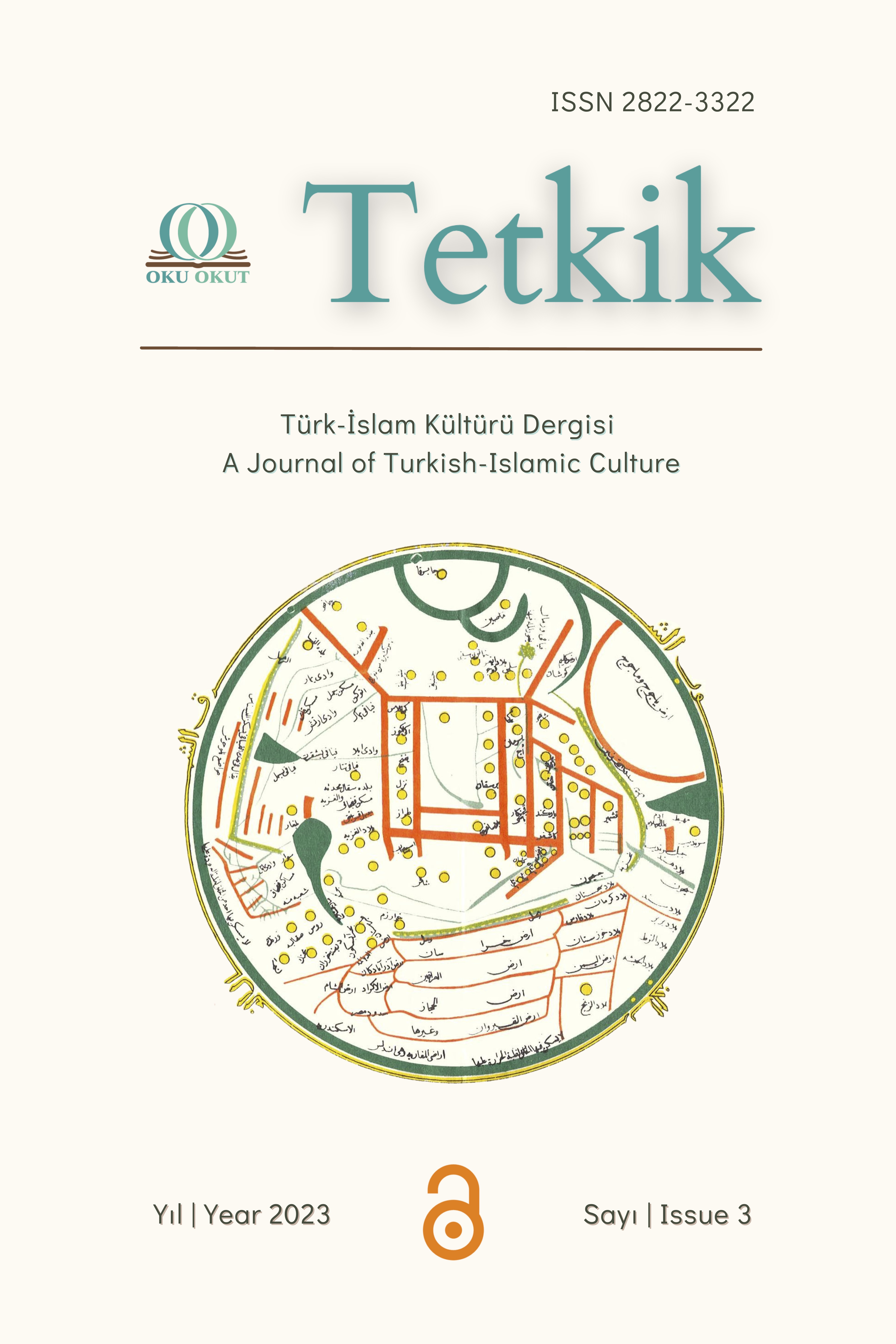
The purpose of this study is to investigate the course of philosophical criticism after al-Ghazālī by using Shihāb al-Dīn ʿUmar al-Suhrawardī's (d. 632/1234) work Rashf al-nesāʾihi al-īmāniyya wa kashf al-fezāʾihi al-Yūnāniyya. Often confused with Suhrawardī al-Maktūl (d. 587/1191), Shihāb al-Dīn ʿUmar al-Suhrawardī is known for his Sufī identity and was the founder of the Suhrawardī order. Al-Suhrawardī organized his work into fifteen chapters and addressed topics like those discussed by al-Ghazālī (d. 505/1111) but differed from him in many ways regarding method and style. In his criticism of philosophy, al-Suhrawardī followed al-Ghazālī and focused on the issues he discussed. Al-Suhrawardī criticized philosophers' views on God's ignorance of the particular (juzʿi), their supporting the theory of emanation and the spiritual nature of the resurrection. This study suggests understanding al-Suhrawardī to trace the course of the criticism of philosophy after al-Ghazālī. Moreover, to appreciate the criticisms of philosophy after al-Ghazālī, al-Ghazālī's Tahāfut al-falāsifa and Shahristānī's Musāraʿat al-falāsifa (d. 548/1153) were compared with al-Suhrawardī's work in terms of their methods and contents. In this way, the present study pinpoints the similarities and differences between the three works. With this aim in mind, it first presents al-Suhrawardī's method in the criticism of philosophy and addresses his criticisms of philosophers. It also compares the works of these three names in terms of method, and content, along with the social and political reasons that led them to write their works. The present study suggests that al-Suhrawardī was mainly similar to al-Ghazālī in terms of their focus, while al-Suhrawardī, unlike al-Ghazālī relied more on the evidence in his method. Al-Shahristānī, on the other hand, mostly remained within philosophy compared to the other two scholars and offered his criticisms. Al-Ghazālī influenced both scholars who lived after him in identifying the subjects to be criticized. However, while al-Ghazālī and al-Suhrawardī agreed on the takfīr of philosophers, al-Shahristānī differed from them in this respect. The present study also concluded that, although there was no intense philosophical activity in al-Ghazālī and al-Suhrawardī's period that could prompt them to write these works, the two authors might have written their works due to certain political directives and social needs as they had close relations with the political figures of the period. Al-Shahristānī's work, on the other hand, appears to be the output of a philosophical debate.
More...
This article presents a quite neglected interpretative tradition within the Islamic philosophy – the Ottoman perception of the debate between Abu Hamid al-Ghazālī and the philosophers. It first discusses the negligence of the Ottoman intellectual contributions in general, i.e. its historical background, and then it moves to the discussion about the above-mentioned tradition which was initiated by sultan Mehmed II. Then it analyzes the long chain of commentators who wrote critical insights into earlier discussions about philosophical achievements. Then the article offers a more specific review of the commentaries of Hojazadeh and ‘Ala’uddin at-Tusi, and their critical views of al-Ghazālī. It also points out the complete absence of the mention of Ibn Rushd in these discussions. The Ottoman authors did not base their views on mere acceptance of al-Ghazālī’s arguments, but rather they pointed out his insufficiently substantiated views and criticized contradictions in his arguments when found. Their primary goal was not to establish the new philosophic systems, but rather to have a more thorough approach towards understanding and expanding the existing ideas.
More...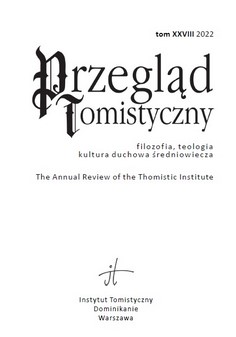
The oldest of the three known manuscripts of the Arabic Liber de causis (Leiden, Bibliotheek der Rijksuniversiteit, Or. 209) and its Latin translation by Gerhard of Cremona transmit this work under the title Kitāb al-Īḍāḥ li-Arisṭūṭālīs fī l-Ḫayr al-maḥḍ respectively Liber Aristotelis de expositione bonitatis purae. The attribution to Aristotle was already doubted in the Latin West in the first half of the 13th century. Albertus Magnus held to the Aristotelian origin of the Liber de causis and possibly had the Theologia Aristotelis in mind, but he was already aware when he wrote the De homine (Summa de creaturis, Part II) that behind this supposed work of Aristotle there was not Aristotle alone, but several authors. A careful reading of Albertus’ explanations on the question of the author of the Liber de causis, which he presents at the beginning of his commentary on this work seems to offer some clues for the assumption that he considered its author to be identical with the author of the Elementatio physica, i.e. Proclus. For a cautious interpretation of Albertus’ statements in this sense, some external indications will be considered in addition to the internal reasons.
More...
In my previous LOGOS article I explained how Aquinas’ actus understanding of the existence, or being, of the thing is not a victim to Suarez’s infinite regress objection to the “Thomistic” real distinction. As such Aquinas does not fall victim to Heidegger’s reduction of Suarez to Heidegger himself. The current article continues my presentation of Aquinas’ unique actus understanding of the existence, or being, of a thing. By focusing upon a passage from Aquinas’ early De Ente et Essentia, I try to present how Aquinas philosophically elaborates casual implications in actus essendi. These implications lead to a first cause that Aquinas identifies with the God of his religious belief. Aquinas’ identification sets the stage for a revisiting of Heidegger’s ontotheology complaint. I will reconsider this complaint in a following article.
More...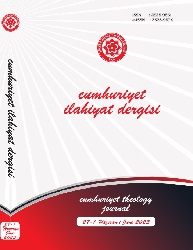
Abu Bakr Razi, an important Islamic philosopher who produced thoughts on how to protect physical and mental health, expresses in his philosophical treatises on morality that there is a close connection between the psychological well-being and their moral competence of a person. According to him, for a person to be healthy both physically and mentally, it depends on not living in a pleasure-oriented way, keeping his/her emotions and thoughts under rational control, being able to critically examine oneself, and actively struggling with the deficiencies that distance them from a virtuous life. Indeed, if a person allows their desires, passions, and instincts to control their mind instead of keeping them under rational control, they will eventually be unable to prevent the recurrence of spiritual illnesses within themselves. This is where Razi’s thoughts on healing the soul and developing moral character can be functionalized as a kind of moral prescription for achieving a virtuous and happy life. According to Razi, who consistently emphasizes the value of reason in all his thoughts on morality, a person can have a correct understanding of the meaning and purpose of existence by combining the power of reason and the power of will be gifted to him by God and can reach the knowledge of the basic principles of how he should continue his earthly life. This knowledge can help him cope with life’s difficulties, overcome his fears/anxiety regarding his own mortality, and struggle with basic human weaknesses such as selfishness, stinginess, and greed, thereby leading to happiness both in this world and in the existential dimension after death. Although it is thought that the human weaknesses that Razi observed directly or indirectly during his lifetime played a decisive role in the emergence of these thoughts, in fact, it can be thought that the weaknesses in question are weaknesses that have always existed with the worldly existence of man and cannot be confined to a certain time or place. Therefore, it can be said that Razi’s treatises, which he wrote for the improvement of morality and which can be defined as the examination of the soul from an Islamic perspective in a philosophical manner, contain thoughts that can guide today’s modern individuals who seek a remedies in the face of sorrow, questions how to rectify their mistakes, strive to break free from the captivity of their passions, and desire to attain a happy life. Considering fundamental issues such as narcissism, self-indulgence, the alienation of death, dissatisfaction, consumerism, meaninglessness, aimlessness, alienation from existence and one’s peers, loneliness, and the belief that everything can be controlled, which have a significant impact on individuals’ mental and physical health in our time, it appears essential to benefit from Razi’s philosophical views that have transcended ages and shaped under the shadow of sacred values for the happiness of the modern individual. In this regard, this article examines Razi’s thoughts that question how the individuals can be healed both materially and spiritually, and touch upon various themes such as liberation from sorrow, abandoning mistakes, coping with human weaknesses, not marginalizing death, approaching existence from a perspective of surrender, and thus achieving spiritual healing, which can guide modern individuals in their vital struggles. The main purpose of the article is to discuss the potential contributions of approaching the issues shaped by the dominant paradigm of the era in which the modern individuals find themselves from the perspective of Razi’s thoughts on the improvement of morality and the possible benefits it can provide to the individuals. The importance of this study stems from the attempt to analyze Razi’ spirituality-oriented philosophical thoughts in relation to the existential dilemmas of the modern individual who has become estranged from the sacred, drifted away from the notion that existence serves a purpose, and identified happiness with materiality. In the article, it has been concluded that Razi’s philosophical thoughts on morality, which place the Transcendent One at the center of his philosophy and advocate for acting in accordance with the guidance of the mind, are valuable thoughts based on rational ways that can guide the modern individual. It was thought that the guidance in question would be particularly effective in the following matters: (i) Understanding the value of others’ existence and guidance, (ii) coping with anxiety/fear of death (iii), taking protective measures against mental disorders seen as symptoms of modernity, (iv) developing alternative solution proposals for finding the lost spiritual tranquility, (v) liberating oneself from pain and sorrow, which are indispensable aspects of worldly life, (vi) keeping passions and sensual desires under control, and (vii) trusting and surrendering to God in times of desperation.
More...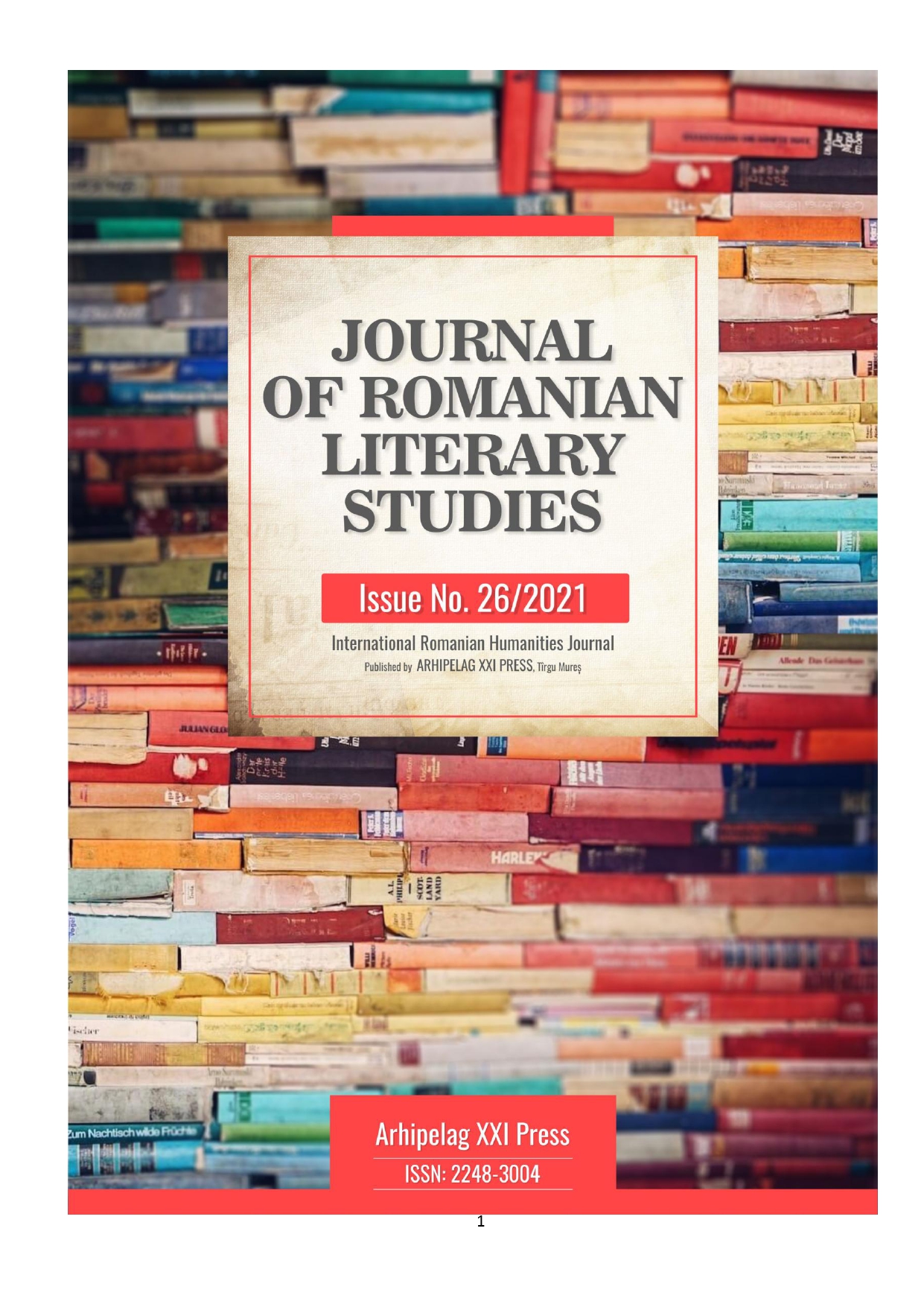
In this article I set out to highlight the connection between two terms, namely the terms "imaginal" and "imaginary". The analysis of these two terms will be made through the prism of some philosophers from the Middle Ages, especially St. Augustine and Saint Thomas Aquinas. At the same time, I will emphasize the idea that the imaginary is seen as an utopian unreality that offers rather an illusion and I will try to show that the imaginary world is real, and it exists only as a result of the relationship between itself and the seeker have a special faculty in the family of imagination. Also, the general theme of this article will revolve around angels and the world in which they manifest.
More...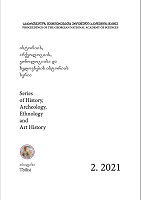
Medieval Georgian Neoplatonist Jon (Ioane, Iohannes) Petritsi was persecuted all his life for his progressive ideas. Hidden for centuries, his name became known to the Georgian public in the XVIII century, and the scientific study of philosophical-theological heritage began in the first years of the XX century. Studies in the field of petritsology are mainly conducted in the philosophical and philological directions. Our aim is to study the problem from a historiographical point of view. According to the established conditions, Jon Petritsi was a contemporary of David the Builder (XI - XII centuries). It was recently suggested that he was living a century later (XII-XIII centuries);However, the modern research hasshown further references and artifacts that might reinforce the previous traditional view. This work is the third in a series of articles published in this journal dedicated to the life and work of Jon Petritsi. This time, we look at the part of the current study that deals with the Petritsi work time problem. To do this, we review the old, modern and recent versions of the case; We refer to the main conclusions and hypotheses of the previous two publications; In order to present the new facts obtained as a result of the current research. The main results of the research are presented in the paper for deeper discussion and further scientific processing: educational symbols of Petritsoni (1083) and Gelati monasteries (1106-1110); Comparative analysis of Georgian historical information and Rhodope rock artefact; First Epistle of Theophylact Bulgarian (“to the Divine Jon”); The recently researched epistle of Theophylact Bulgarian (“Jon the Philosopher”) and the problem of the dialectician “Someone Jon.” The chronology of the listed issues and the information presented in them correspond to the theological-philosophical concepts of Jon Petritsi and the previously accepted time of his activity (XI - XII centuries). We believe that new information and hypotheses related to the biography of Jon Petritsi need further scientific elaboration, a different understanding of specific issues, and a revision of the problem of the working time of the great philosopher and theologian.
More...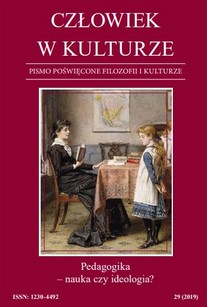
To get a basic understanding of ideology, the author sketches briefly its philosophical underpinning as conceived by its founder. Then he compares ideology to an alternative way of philosophizing by examining Aristotle’s philosophy which will include one of the most important philosophers in the Aristotelian tradition, St. Thomas Aquinas. In conclusion, he determines what pedagogical benefits flow from such a comparison.
More...